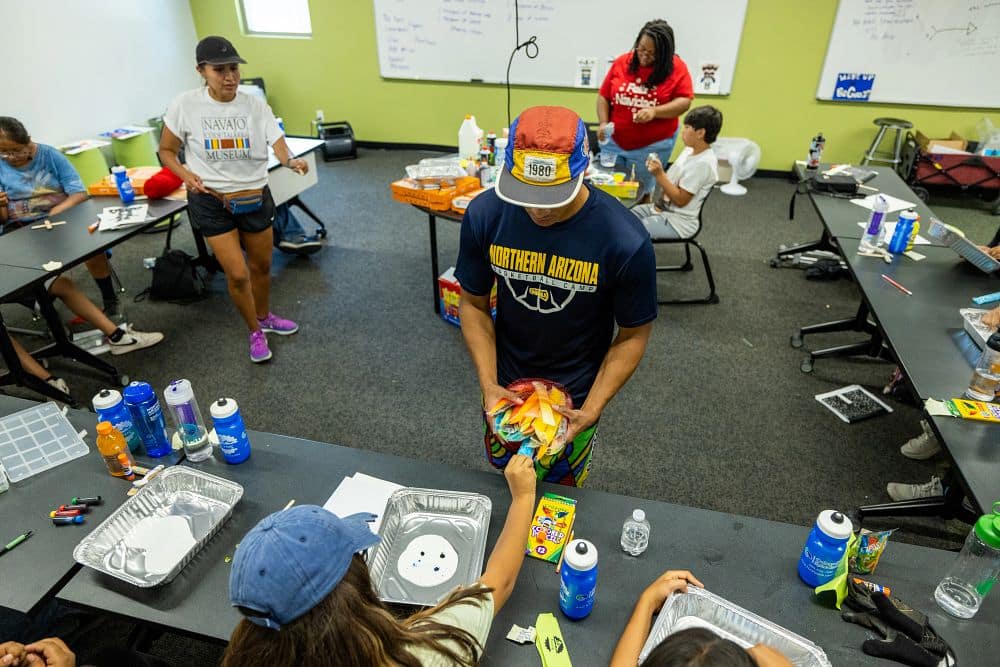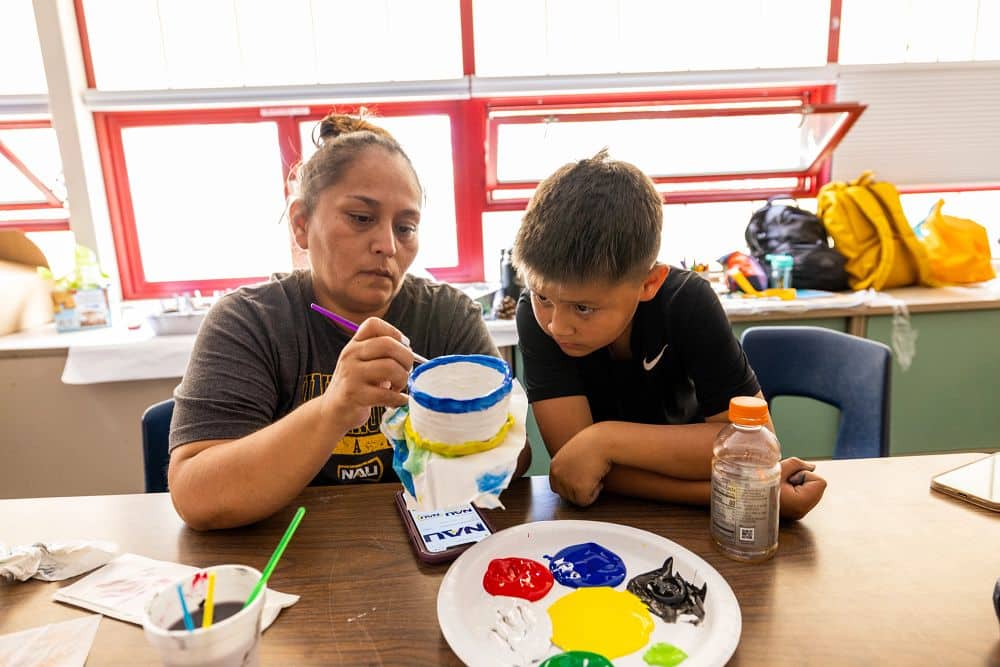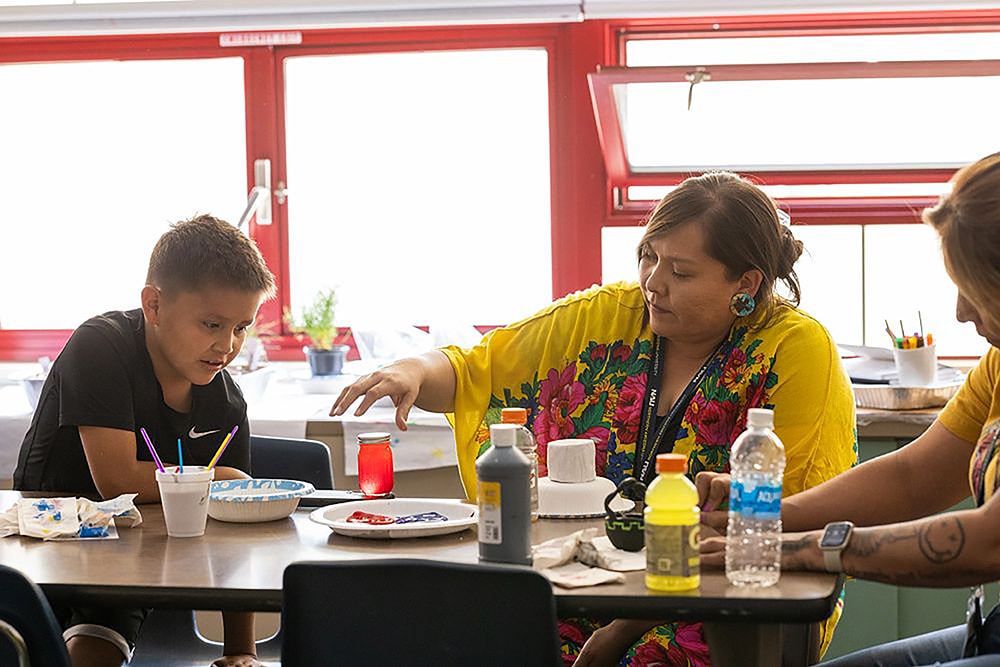An innovative program at NAU is designed to increase the number of teachers in Native-serving schools without taking them out of their communities to earn the needed degree.
Preparing Indigenous Teachers for Arizona Schools (PITAS), which began in 2022, just started its second cohort of paraprofessionals and educational assistants who are in the classroom every day but who are not teachers—yet. The two-year program offers these educators the opportunity to earn a degree in elementary education while remaining in their communities and in their jobs.
It’s a huge step forward in preparing teachers in a way that is culturally responsive and includes content that is meaningful and relevant to Indigenous communities, said Angelina Castagno, chair of the Department of Educational Leadership in the College of Education. She also is the principal investigator for the project, which just received a $500,000 grant from the Office of the Governor.
“These individuals often have incredible skill working with children and are leaders in their communities, but for various reasons, have not had the opportunity to earn an advanced degree to become certified teachers,” Castagno said. “Teaching is such an important profession because of the impact teachers have on young people in their communities, and when teachers are from the communities they teach, they more fully understand the lived realities of their students, and they can leverage the assets and gifts of the students, families and broader community.”

Tomah Welch, who is Diné, is one of four employees from Tuba City Boarding School who enrolled in the first cohort of PITAS. Two coworkers mentioned the program to her, including a teacher in whose classroom Welch had worked. This coworker always encouraged her to return to school to become a certified teacher, but Welch always felt the cost was prohibitive. NAU changed that. Welch called PITAS “an opportunity for me that I could not resist.”
“We all come from various backgrounds and have diverse life experiences that seemed to pull us together for a more culturally enhanced experience,” she said. “Incorporating these aspects enriches the whole learning experience and also better equips us as aspiring educators. I will leave the NAU PITAS cohort knowing that I grew more as an Indigenous educator.”
This new round of funding will support in-person learning retreats and a two-week summer residency at NAU, which allows cohort participants
Castagno is excited to see the first cohort of students graduate and see them enter their own classrooms in their communities. Given the statewide teacher shortage and the struggle to retain early teachers, programs that offer culturally relevant education, peer and mentor support and the opportunity to earn a degree while still keeping a job are necessary for Arizona.
“We know that teachers who are from the communities where they teach tend to stay in the profession and stay in their communities longer, thereby forming long-standing relationships and contributing to overall teacher retention,” she said. “This is why programs like PITAS that focus on growing teachers from within local communities are so needed.”
Heidi Toth | NAU Communications
(928) 523-8737 | heidi.toth@nau.edu




